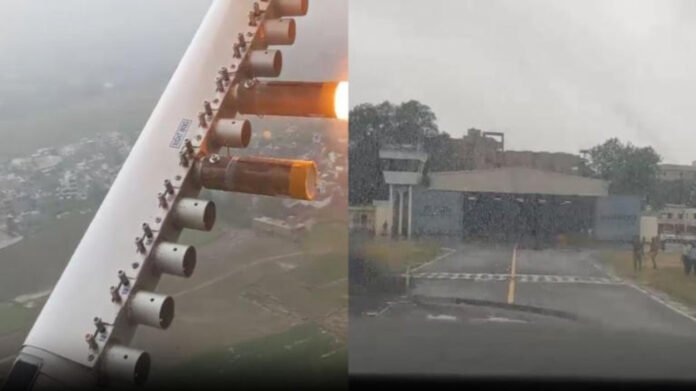Artificial Rain Holds Promise for Drought-Prone Regions and Mitigating Urban Smog
IIT Kanpur, renowned for its research and innovation, has achieved a significant breakthrough in the field of weather modification. After years of dedicated efforts, scientists at the institute have successfully conducted a test of artificial rain through cloud seeding, opening up possibilities for creating rainfall in drought-prone regions and offering hope for agricultural communities facing water scarcity.
The project, initiated by IIT Kanpur in 2017, faced several challenges and delays in obtaining necessary permissions. However, with meticulous preparations and thorough evaluations, the Directorate of Civil Aviation (DGCA) finally granted permission for the test flight, marking a crucial milestone.
During the test, a Cessna aircraft took off from IIT Kanpur’s airstrip, ascending to an altitude of 5000 feet. Utilizing cloud seeding technology, the aircraft released chemical powder into the clouds, stimulating the formation of raindrops. Shortly after, rainfall was observed in the surrounding areas, validating the effectiveness of the artificial rain technique.
China, having developed this technology earlier, had not shared it with India. Consequently, scientists at IIT Kanpur took it upon themselves to explore and develop the necessary expertise. After six years of relentless research, they achieved success in producing artificial rain through cloud seeding. Notably, the employed technology is expected to have no adverse effects on the environment, making it a sustainable solution to water scarcity challenges.
This breakthrough holds promising prospects for regions such as Bundelkhand in Uttar Pradesh, which have long suffered from drought. By creating artificial clouds and inducing rainfall, this technique has the potential to bring significant relief to drought-stricken areas. While the recent test flight marks a milestone, further assessments and evaluations by the regulatory agency, DGCA, are required to determine the viability of conducting more extensive trials.
Additionally, the success achieved at IIT Kanpur brings renewed hope for addressing water scarcity issues and mitigating the impacts of smog in cities like Delhi. In fact, the institute had previously formulated a project aimed at creating artificial rain in Delhi, offering a potential solution to the city’s air pollution challenges.
Professor Manindra Agarwal, a distinguished faculty member at IIT Kanpur, expressed his satisfaction with the outcome, stating, “This success is a testament to the tireless efforts and dedication of our team. We believe that artificial rain can have a profound impact on water availability and agricultural productivity in drought-prone regions.”
The potential of artificial rain technology extends beyond regional water management, with applications in addressing urban smog conditions. The progress made by IIT Kanpur in this field brings hope for a future where weather modification can provide sustainable solutions to environmental challenges.



